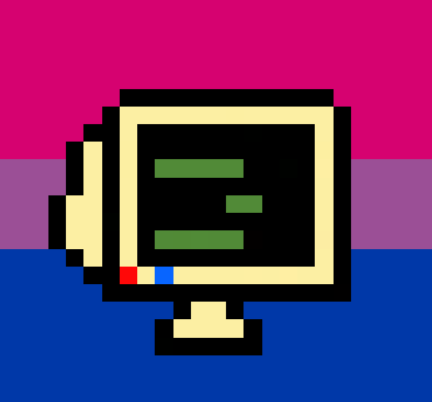I’m old. I don’t understand it.
When you have a computer, you have hardware which is the box in front of you but on that box you can install different software. E.g. windows, macos or Linux.
Linux got its name from Linus Torvalds who was what I’ll say the architect and substantial worker of the kernel, ther very core of the operating system
The computer has a few layers. If you write a program, it may do something like let you read emails,but this program is at the top layer and when you do something like save a picture to your desktop, it tells the operating system that the email attachment is to be written to the disk.
Now the hard drive of the computer is managed but the operating system, and the operating system negotiates with the hard drive on where to actually store it on the hard drive.
In a sense the operating system is like a person you give a photo to and say file this away for later.
That person was there when you got the hard drive/filing cabinet and keeps track of what sin which draw and in which removable folders.
Later when you ask the operating system to show it again, it goes back to the filing cabinet and gets the picture without you or the email program having to know the nitty gritty of it was in the 2nd draw , nearly all the way up the back.
The operating system also does thing like operate a the WiFi a bit like a radio and schedules when tasks run on the computer.
Im stretching the analogy here but imaging an office where only one to four people work there. the operating system keeps track of all the things they need to do and make the system function well.
Microsoft made Dos (disc operating system) and windows. Apple made Macos , a long time ago on early mainframe computers there was Unix and Linux is an operating system originally made to replicate the look and feel of Unix.
But it’s build under an open source licence so you can download and see all the internals and change them if you want.
Android phones and tablets run Linux.
It’s versatile and can be adapted. I’ve got some 10 year old computers I’ve reconfigured as a server running Linux that wouldn’t be able to run modern windows operating systems.
Edited to add People make up different distributions like flavours of Linux.
Debian is a version which is old and stable. It’s not bleeding edge, but their releases are tried and tested.
Ubuntu is one which Ive bee using for a while and I’d call it user friendly.
Gentoo is a distribution which the installation compiles it’s source code optimized for each computer it’s installed on to be as fast as possible.
Kali is a distribution focusing on network security.
Arch is another distribution.
I hope it helps.
Every desktop computer has an operating system. Most of them run Windows. Some run MacOS, this is why the software on Macs and other PCs is different.
Linux is another operating system, its free and anyone can see the code its written in.
Linux is popular with nerds and programmers since its easier to do some advanced stuff in. Its popular as an alternative to windows since Windows is progressively getting more annoying to use (updates, popups etc).
Linux is used by servers (computers that run websites, like lemmy), and other stuff like smart appliances.
The android Operating System (used by android phones, like Samsung phones) is based on linux.Is there a Best of Lemmy community? Cause this belongs there.
This is an amazing explanation, and you also managed to keep it relatively short.
Yes but you missed a lot of things of course.
Linux is free software, unlike MacOS or Windows. That means that the software is given users for free, and they can mostly also change it and redistribute it as their own.
This is why there are so many varieties of Linux Distributions, as the used software components are often the same, but they are released in different cadences, have different configurations and behaviors, or different focuses (for example Gaming, Server, Workstation, Lightweight, System rescue, hacking, anonymity).
Free software means that everyone can use it, how they want. Nobody needs to pay, but donations and contributions are crucial. While many big components like the core part “Linux” and others are developed and maintained by bigger corporations (which sell support or systems to mostly enterprise customers), a lot of the Linux software is fully done by people out of love, in their free time.
I appreciate the reminder about donations; just went to drop a little money on Mint as thanks to them!
Linus is an overly complicated and super buggy OS for PC. But for everything else that uses Linux it works fine.
Good for cars, phones, consoles, smart TVs etc. but bad for personal computers as you need a 10 year degree in coding just to install a dumbass program that will probably crash the whole computer anyways.
I hate Linux. I have tried dozens of versions for dozens of years and every distro is the same shit box as the next. I think the real problem is you’ll have a distro by a group of regular people and it sucks. Then you have a distro like steam OS where an actual company made it for one specific thing and it works fantasticly.
Okay, imagine your computer is like a big playground.
Linux is like a really cool, free, and super customizable manager for that playground.
- Manager (Operating System): Just like Windows or macOS, Linux is the main software that runs your computer, manages all its parts (like the screen, keyboard, and internet), and lets you run other programs (like a web browser or games).
- Free: Most of the time, Linux doesn’t cost any money to use.
- Customizable: Unlike some other managers that have strict rules for how the playground is set up, Linux lets you (or people who know how) change almost anything about how it looks and works. This is why there are many different “flavors” of Linux (called distributions or “distros” like Ubuntu or Mint), each with a slightly different setup.
In short: Linux is a free, open-source operating system that gives you a lot of control over your computer. Many phones (Android is based on Linux!), servers that run websites, and supercomputers use it because it’s powerful and flexible
Yes I use AI
Yes I use AI
For this comment? Why?
Low effort question, get a low effort answer. Google do still exist. :)
I think you miss the point of this community
imagine your computer is like a big playground
… goes on to do nothing with that analogy.
Yes I use AI
No you don’t.
You used a large language model, which is a very fancy statistics based autocomplete algorithm, but has absolutely nothing whatsoever to do with artificial intelligence, other than by harming public opinion of it and sucking off all the funding that could be used on actual AI research.
Good luck convincing the general population. Better to just accept AGI is the new term for what you’re referring to.
It’s neither general nor intelligence.
You misunderstand me.
AGI doesn’t exist.
Of course it doesn’t, everyone is wasting time and money on LLMs instead of on proper AI research.
That’s not a reason to call them AI or AGI, though. On the contrary, it’s poisoning the term, because once the LLM bubble bursts no one will want to invest in AI research for decades, because they’ll associate it with LLMs. (Not to mention how hard it’ll be to research anything when all sources of information have been poisoned with LLM slop.)
I never said we should call the LLMs AGI. All I’m saying is the general population does call it AI, and that’s not going to change.
Like you’re 5… Ok.
Do you play videogames?
On the computer or on the TV?
Like Xbox? PlayStation?
Cool! Xbox and PlayStation are both “gaming consoles” and they are kinda not too different from a computer, but they’re computers just for videogames. Even like a phone, or a Nintendo switch is a computer.
All computers have operating systems. Think of this as what’s on the screen when the computer isn’t doing much other than being on. Like the desktop, the home screen. That’s kinda your operating system. It’s the command center where you can use your computers tools!
Here’s the deal. Linux? It’s an operating system.
PlayStation uses their own modified version of Linux.
Xbox doesn’t. They use a modified version of Windows (kinda).
Apple phones use a modified version of Apple computers operating system.
Android phones use a modified version of Linux.
the Operating system in your computer can be Linux, too! 🤓
Apple’s operating system is based on UNIX
Doesn’t PlayStation use BSD…?
I was too afraid to ask, thanks…
I scrolled the comments and every single one is incorrect.
Linux is not an operating system. It is a kernel, which is an important component of an operating system. Operating systems that use the Linux kernel are often referred to as “Linux” for simplicity and brevity, though. It should be understood that when someone says “Linux” they typically are meaning “an operatjng system that uses the Linux kernel”.
Agree, but this is the ELI10 explanation, not the ELI5 explanation. ChromeOS and Android are both operating systems that look and act very different than an operating system like Debian or Fedora, but all four of these examples use the Linux kernel.
I don’t know… I think his description can be overly complex/abstract for eli5 AND all the other descriptions can be wrong.
Here’s my attempt:
You know how with Lego you can make all sorts of stuff, but you can also buy a kit with some main pieces pre-molded that you attach the other bits to, to make your object?
Linux is like that pre-made bit, with bumps on it in specific places to build the object. It’s designed to be the interface between the non-Lego objects and the Lego pieces.
But unlike in most systems, with Linux, everyone can tweak the pre-made bit, and it must be given away, along with the instructions on how to build it.
And of course, this all runs in software on electronics, not using physical objects made of plastic.
I will be quick: just an operating system like Microsoft windows or Apple Mac OS.
It’s kinda similar to Unix.
Lots of great explanations, but something I didn’t see, or missed:
- If it’s free, how do the companies making it stay in business? Not all Linux variants, or distributions/distros (there are a lot), are backed up by a company. The ones that are offer an enterprise version (like Microsoft sells Windows Server) for a price. Since “Linux” refers to the core of the OS, and its license dictates that it must be offered for free, you can get these enterprise versions for free. They charge for updates, levels of support, and some in-house developed solutions that work well with their distributed.
- If the source code is open and maintained by a community for free, how is that better that something made by professionals at a company? This is a huge topic, but to boil it down: First, the projects responsible for Linux distros and most of the utilities found within are run quite competently. It’s quite difficult for some random person to insert janky code. Second, most of the people contributing to these projects are often professional coders in their “day job,” or their “day job” includes contributing & maintaining this project. Third, when some random person finds a bug or exploit in these utilities and operating systems, the process for reporting and resolving it is pretty transparent compared to what you’ll find with for-profit software companies. Because the code isn’t proprietary, processes involved in auditing it tend to be open to the public.
It’s a desktop operating system
I’m fairly certain desktop computers (and PCs in general, including laptops) are a very small portion of the devices that use Linux.
I expect most Linux devices are phones and tablets (Android), followed by embedded devices (though BSD probably outweighs Linux on those), followed by servers, followed by desktop computers.
There have been some great answers already but there are some things I’d like to add: all commercial operating systems (especially Windows and Chrome OS, but MacOS is not at all innocent in that regard) are becoming increasingly focused on data harvesting, advertising and controlling what the user can do with their computer. Linux doesn’t do any of that. Your computer is yours and nobody tries to control what you do with it. And if you use a beginner friendly distribution, it’s not really more difficult to use.
I would argue it’s easier to use than Windows at least, but it is different from Windows so moving from Windows to Linux can be challenging and you have to be willing to adapt. Package managers make the experience so much better for users though, and you don’t have to hunt down random executable online for installs or updates (usually). There’s also no mucking about with a thing like registries in Windows to make it work how you want, which you don’t have to do on Windows but to make it less annoying you do.
Free as in freedom!
Freedom to do whatever you want, however you want. Including brick your computer.
But honestly, modern distros are really smooth feeling. If you slapped Mint on just about any computer today it will run better and longer, and you’ll quickly find that it’s just as easy - if not easier - to use as Windows or MacOS.
Also its worth noting that MacOS and Linux share genetics that don’t really matter to 99% of users, but if you want your Linux to look and feel like a Mac, you can do that very very easily.
Also the KDE Plasma DE is super fun and I’m addicted to it now
There’s Microsoft windows and there’s Linux. No single person owns Linux so there are so many different options to use (called distros) the big ones Debian, Fedora, Arch, OpenSUSE, Etc package open source software on top of Linux that enable you to use it as easily as possible.
To a 25yo I would say, a computer has many separate devices like USB controllers, sound devices, so many independent systems that need software to work. Such software is copyrighted, it turns out the community does not like that so they made their own that is owned by the community. Sometimes its not perfect but it also can do things you couldn’t before.
Linux is one option for the core, central part of how a computer works, called a ‘kernel’. All programs talk to Linux, which talks to the physical computer.
Windows has its own version of that kernel, Mac has another.
Linux is special because it’s free for people to use, change, and check what it’s doing.
There’s a lot of programs built to work with Linux: together they are what you use to use your computer. Like, Windows is actually lots of smaller programs working together, and Mac OS is lots of smaller programs working together. Most people say ‘Linux’ meaning all these programs running together, with Linux at the core.
In other words, Linux is a system that runs on your computer, so you can run the programs you want (like Emacs, or Inkscape) on top of that.
Already some way better answers than i could give, however I would stonely suggest you take a look at using it. Windows is terrible, especially nowadays, and for the general user (“office”, web browsing, etc) its 100% stable, easy to use, and free!
There will be a slight learning curve for new users if your not especially tech savvy, as your question implies you may not be, but if you choose the right distro (version) you’ll be fine!
Linux can be super complicated, if you want it to be, but can also be super simple if you dont need it to be.












